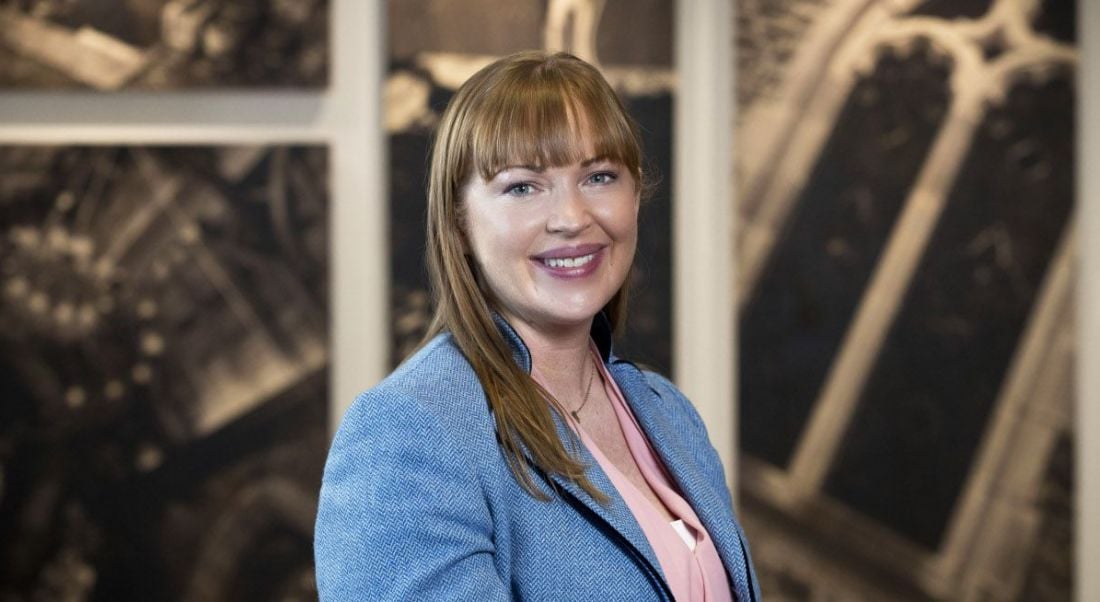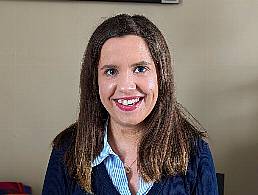Ger O’Donovan of MSD wishes graduate programmes were widespread across all industries in STEM.
Ger O’Donovan, a senior specialist in project management with the global engineering solutions (GES) team at MSD Biotech Dublin, enjoys many things about her career in STEM. She even enjoys the challenges it brings. She wouldn’t have her career any other way but, if granted the power, there is one thing she’d do differently in this sector.
“I believe the industry should ensure every graduate of a STEM course has an opportunity to sign up for a graduate programme,” O’Donovan explained. “It’s a great opportunity to kick-start their careers and equip them with the skills required to enjoy an exciting and rewarding STEM career.”
These programmes are a prime example of how mentorship and guidance are so vital in the early stages of a STEM career. They allow you to connect with others in your field and benefit from their insight. Yet O’Donovan also stresses that mentorship doesn’t – or more, shouldn’t – end once you become more senior.
We spoke to O’Donovan about her career, how she approaches challenges, the importance of mentorship and more.
What drew you to project management?
The quest for diversity, problem-solving and travel opportunities. Technology is always evolving, which means delivering solutions for projects is also constantly changing and very enjoyable. Having started my career as an instrumentation engineer, moving on to a project engineer and now project management, I’m well on my way to achieving my quest.
How do I know I made the right career choice? I’m still learning and still solving problems.
What’s the best thing about working in this area?
The project I’m currently working on is the development of the MSD Biotech Dublin manufacturing facility in Swords, Co Dublin. I have taken on the role of process delivery lead with global engineering solutions. The new facility will ensure MSD meets the growing supply for life-changing medicines.
The department which I’m part of at MSD Biotech Dublin is responsible for the end-to-end planning, management and execution of global projects. It’s an exciting time to work in MSD and especially within the engineering team as our engineers get the opportunity to be involved in a number of interesting projects planned for the future.
What’s the most exciting development you’ve witnessed in your sector since you started working in it?
Working in the STEM sector since graduating from CIT with a degree in applied physics and instrumentation, I’ve had the opportunity to work in a diverse range of projects from sterile filling, active pharmaceutical ingredients [to] environmental, in locations from Cork to Singapore. To date the most exciting opportunity I’ve worked on is supporting in the development of life-saving cancer therapies, both commercial and clinical.
What aspect of your job did you struggle/have you struggled to get to grips with?
Work-life balance can always be a challenge for any career and it’s something I’m keen to improve. One of my colleagues gave me great advice to practise the art of delegation, which has been incredibly helpful. Also, with experience, you learn to let go of the small stuff and focus on the bigger picture.
What’s been the hardest thing you’ve had to face in your career, and how did you overcome it?
Some of the hardest things I’ve had to overcome in my career have been the most rewarding. One such challenge is scheduling projects where there can be an overwhelming workload to complete, all the while maintaining exceptional levels of quality and safety. The main reason I was able to overcome these challenges was due to the team working with me and their commitment to deliver on time and to excellent standards.
If you had the power to change anything within the STEM sector, what would that be?
I believe the industry should ensure every graduate of a STEM course has an opportunity to sign up for a graduate programme. It’s a great opportunity to kick-start their careers and equip them with the skills required to enjoy an exciting and rewarding STEM career.
Which of your personality traits makes you best suited to your job and this sector?
I’m a multitasker, an approach that many women are predisposed to and perhaps that’s what makes us such great engineers. Also, being able to make decisions and be a team player. For me, the right decision is the one that allows the team to progress and move forward.
Is there something in your personal life that helps you/has helped you in your job at MSD?
My family and friends are there to encourage and inspire me, both in my job and personal life, to achieve a healthy work-life balance.
How do you make connections with others in the STEM community?
There’s a good infrastructure within MSD which allows me to reach out to colleagues all over the globe. This has provided a tremendous amount of support for my own professional development as I can learn and share knowledge with a diverse pool of individuals from across the MSD network.
Has mentorship or coaching been important in your career?
Mentoring and coaching is important from the start of your career and never stops. I’m fortunate to have worked with amazing engineers from whom I learned my skillset and who help guide me in making decisions.
It doesn’t stop either – currently, I’m part of a peer and mentoring programme with MSD, which offers me a platform to speak with colleagues from diverse backgrounds to discuss our careers, opportunities and problem-solve together.
What advice would you give to someone thinking about a career in your area?
Find a diverse graduate programme and use it as an opportunity to experience the world of engineering. Finally, there’s no such thing as a ‘silly’ question – if you don’t know, just ask.




